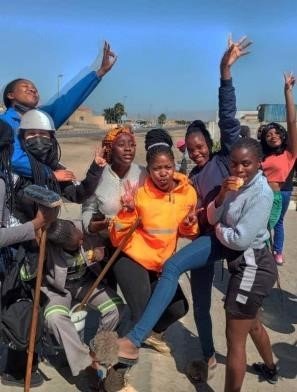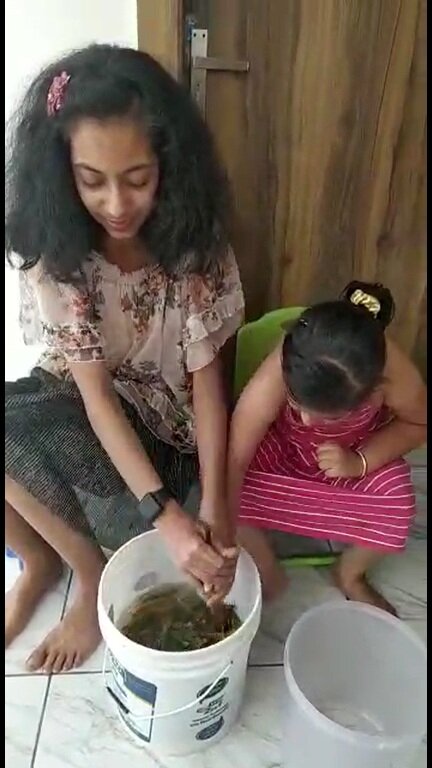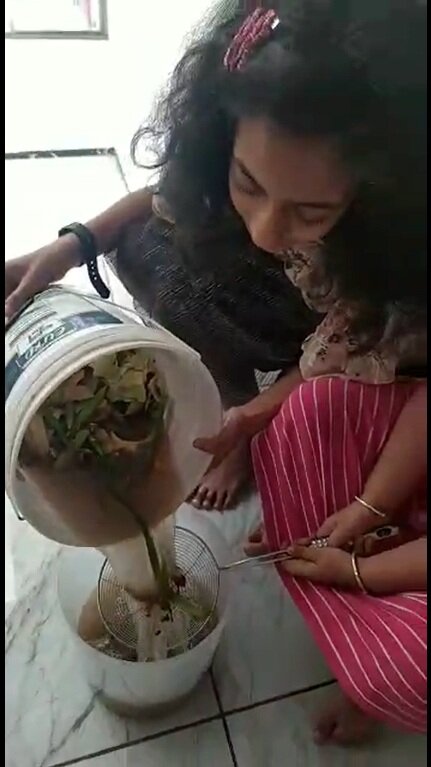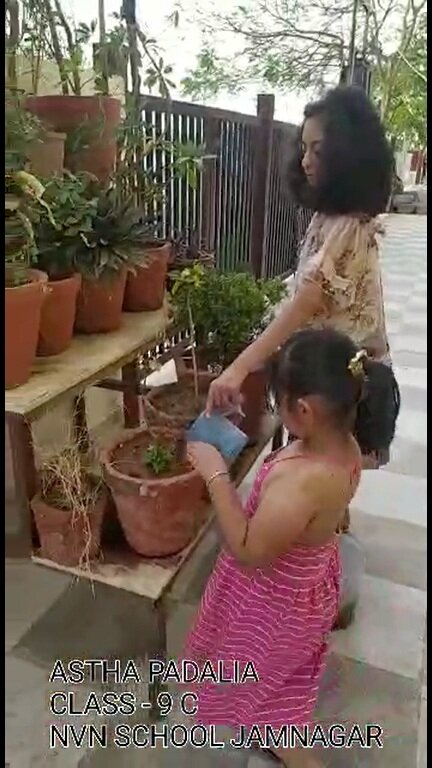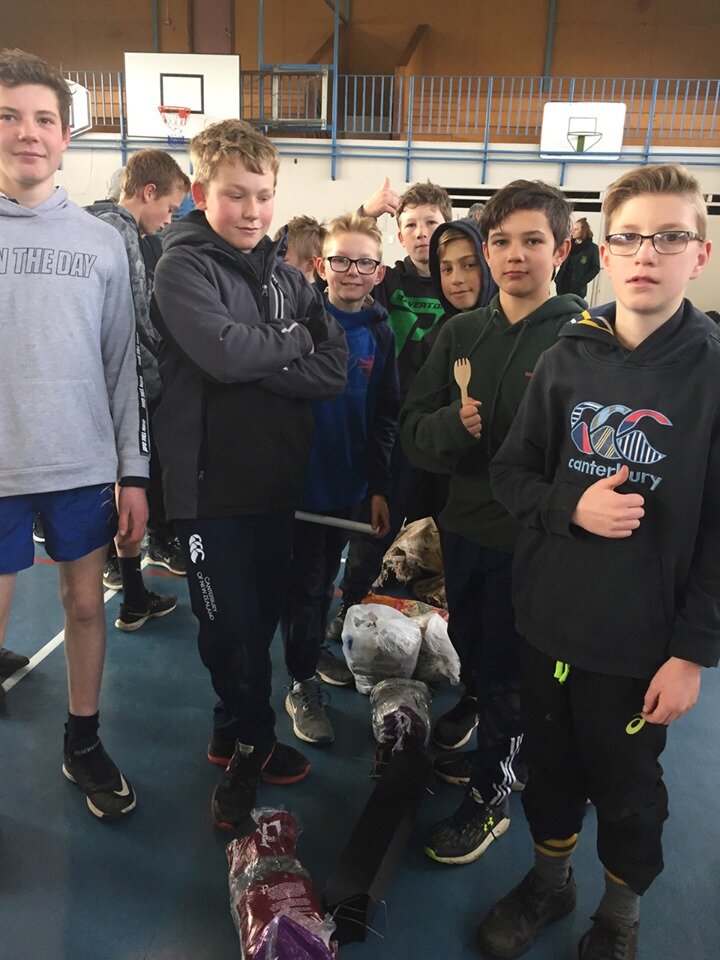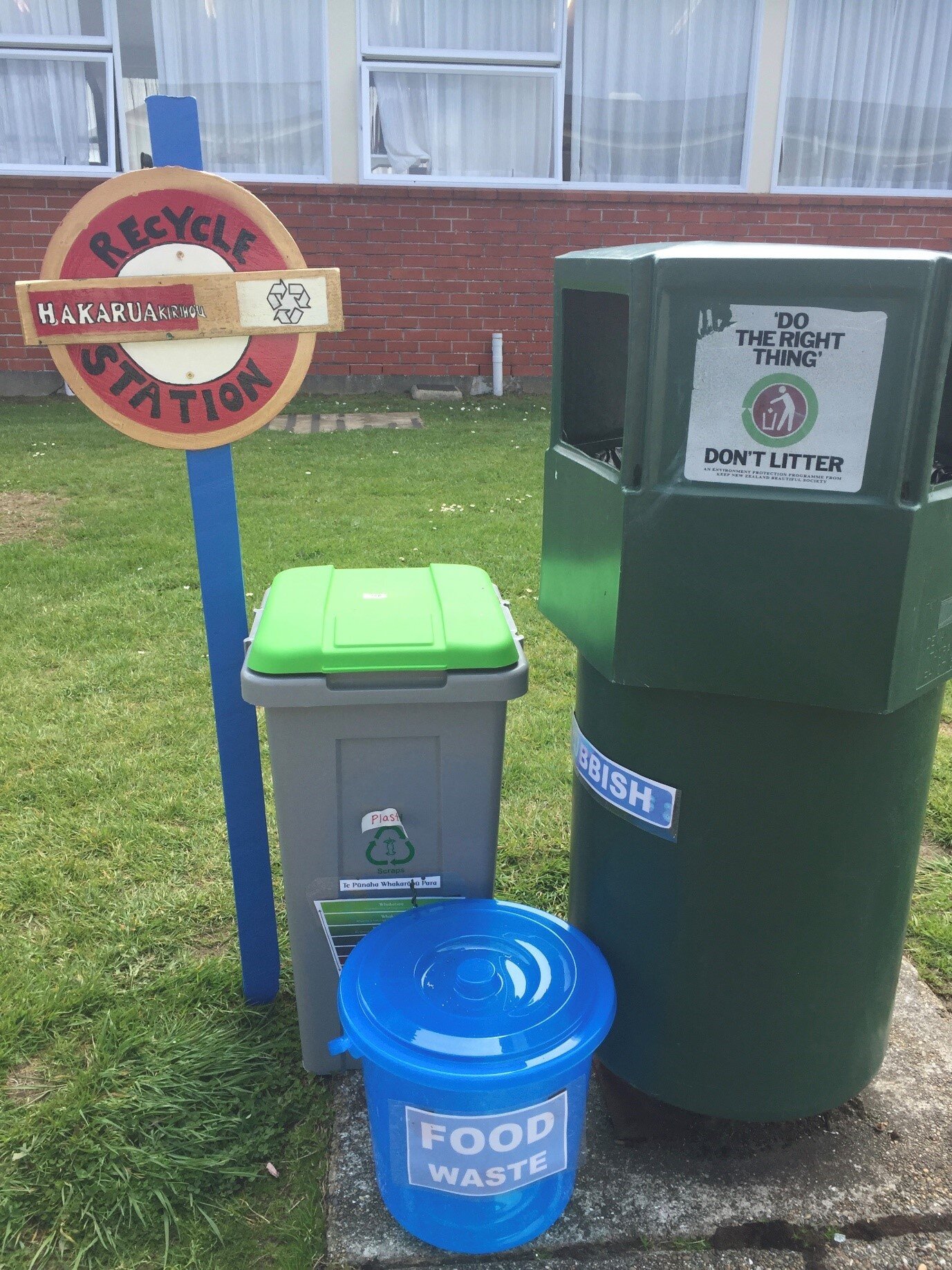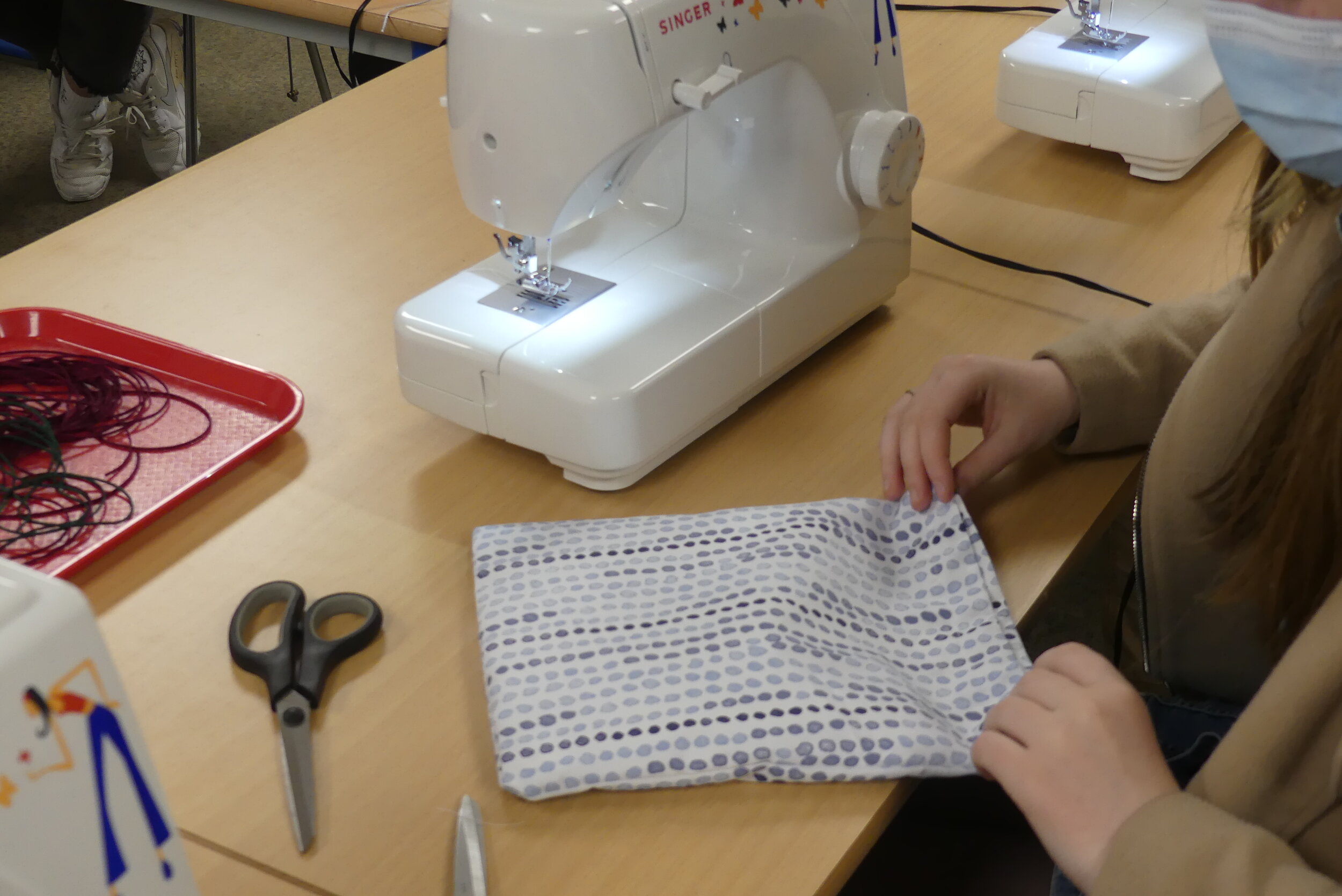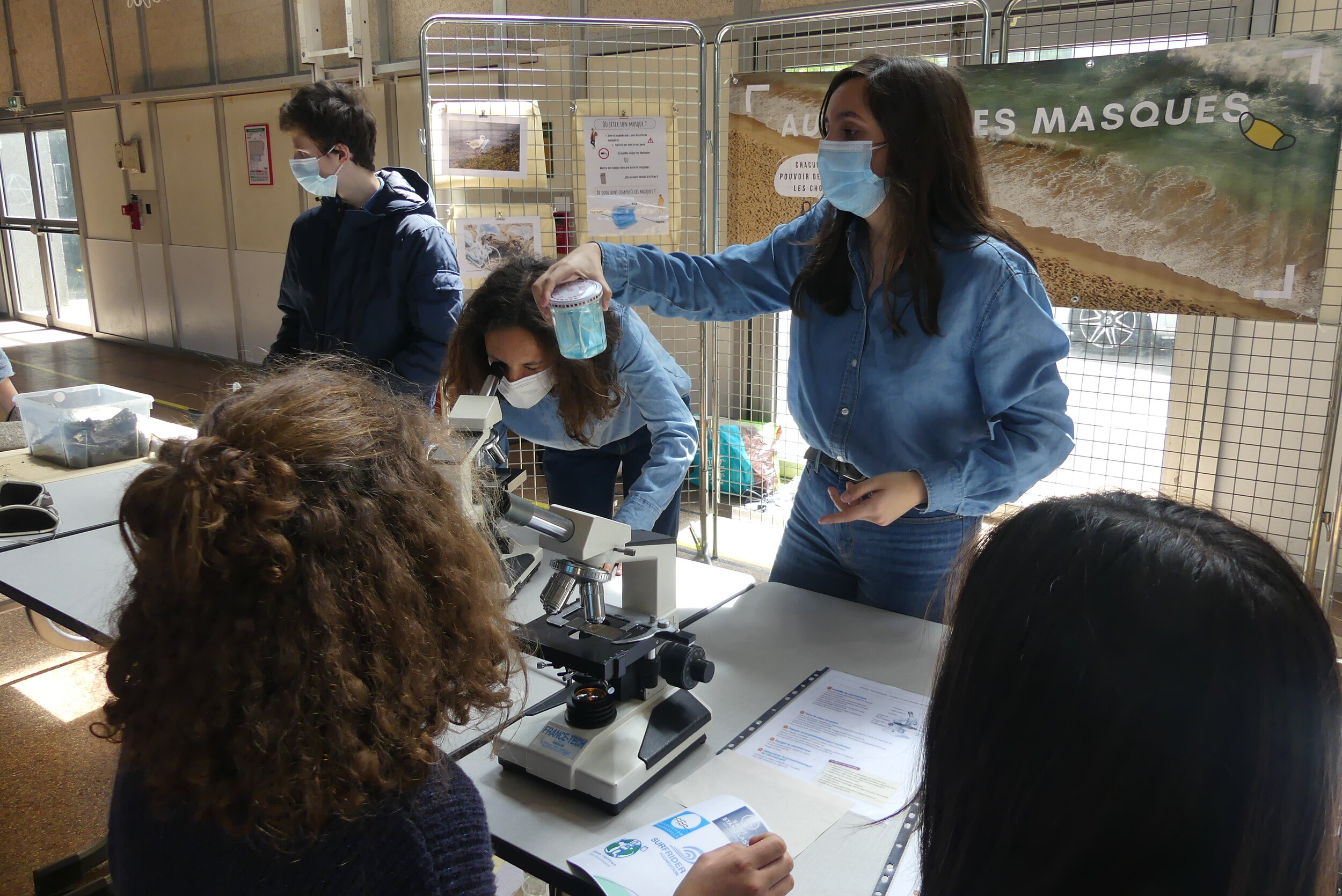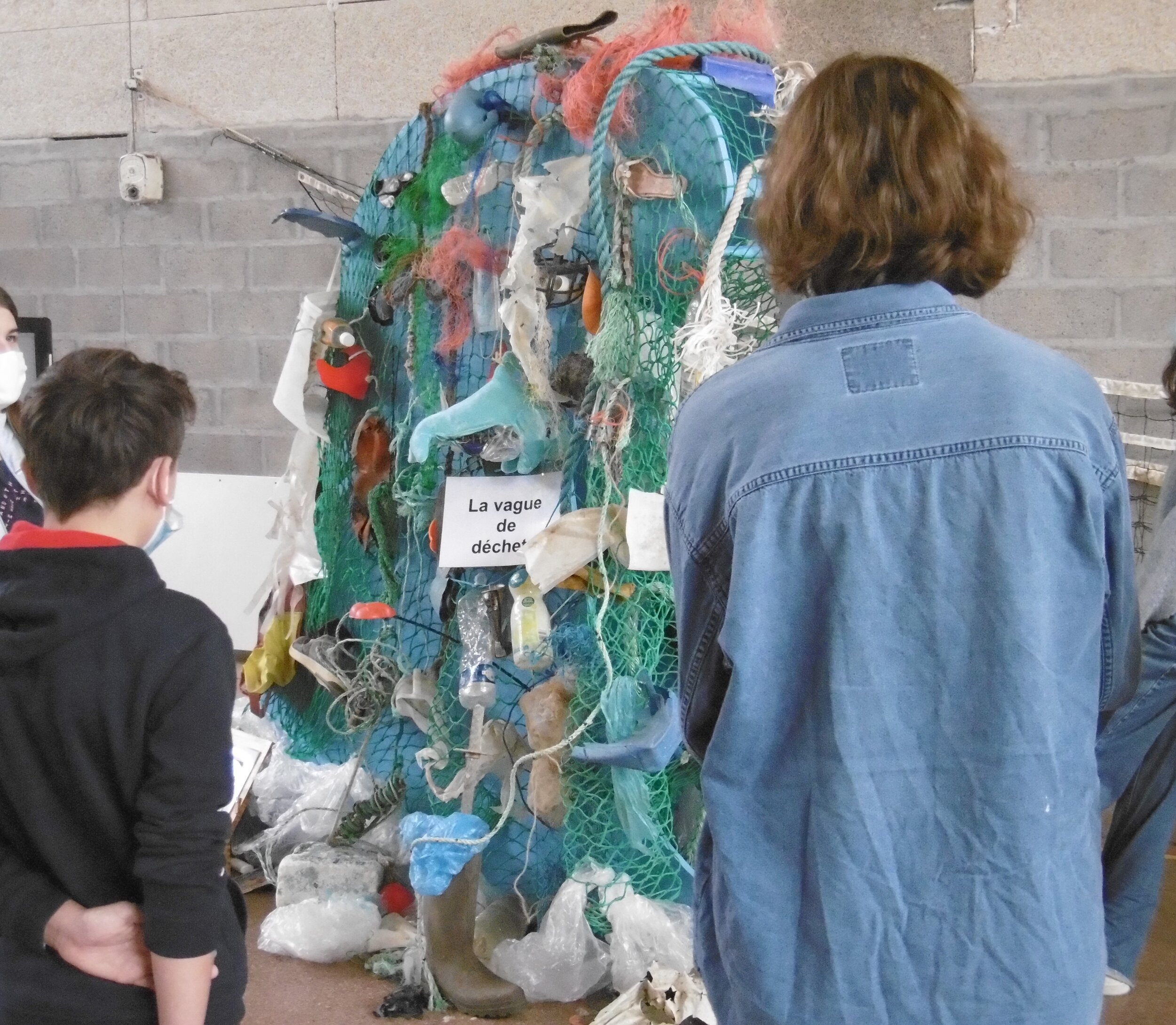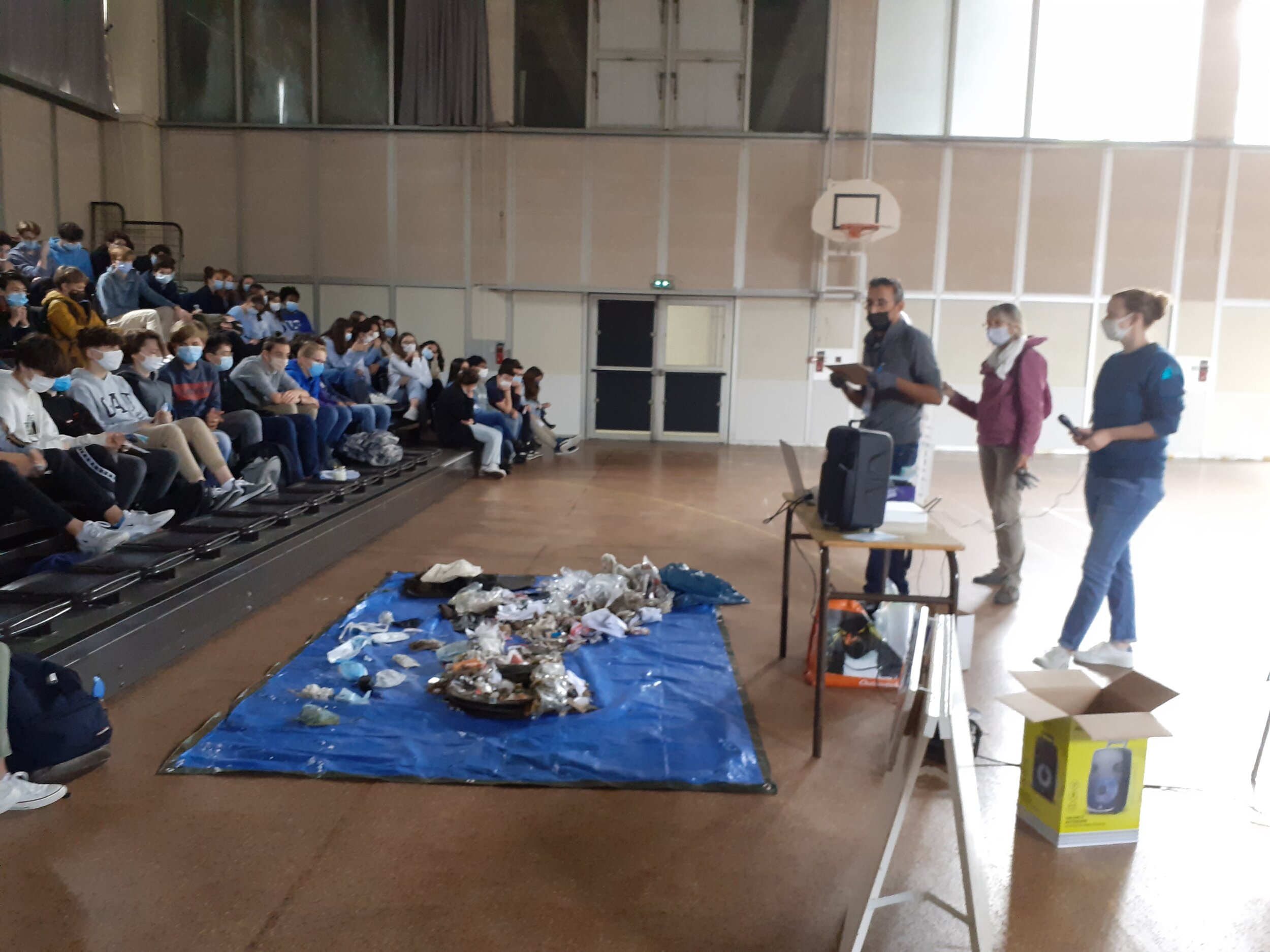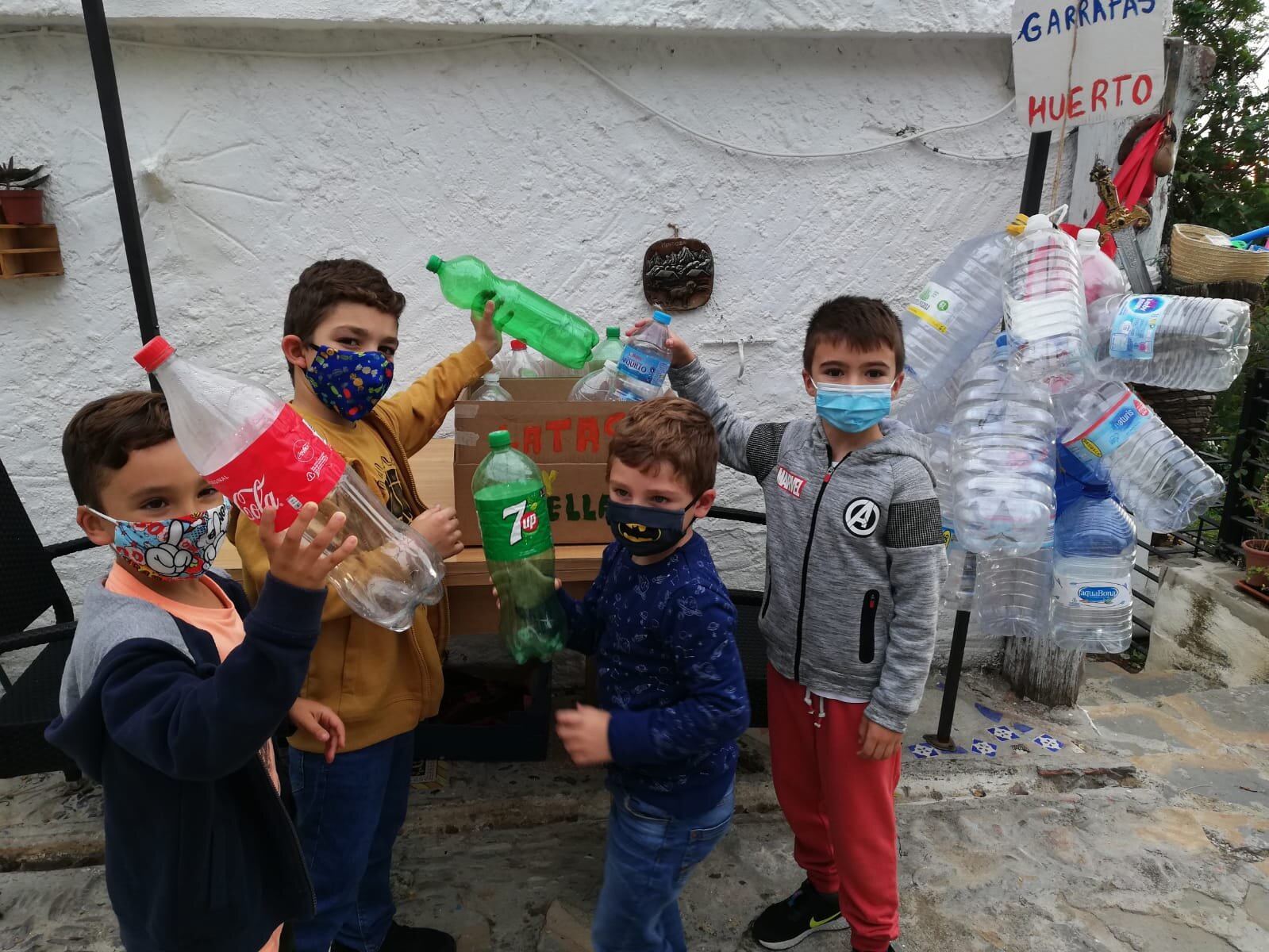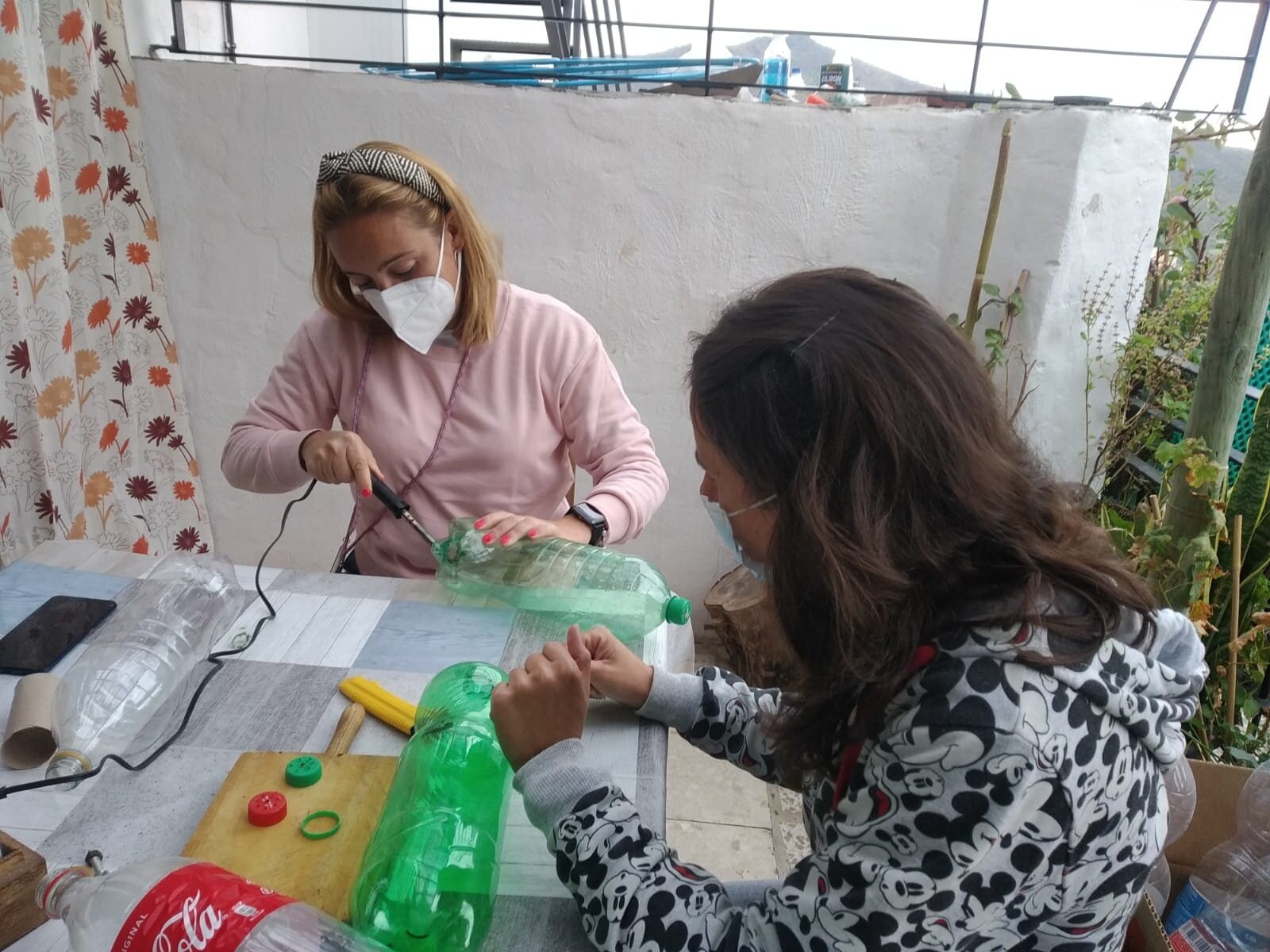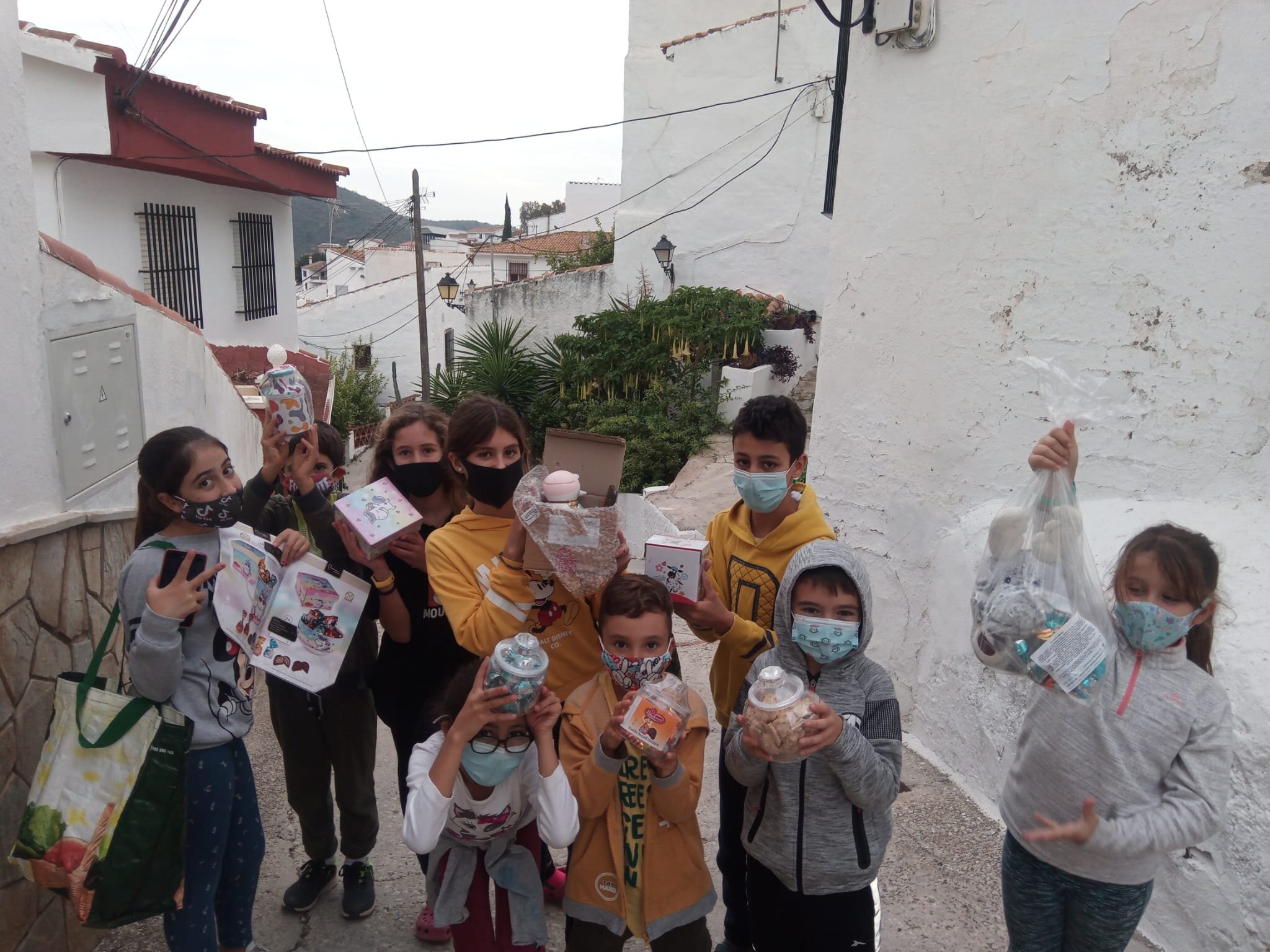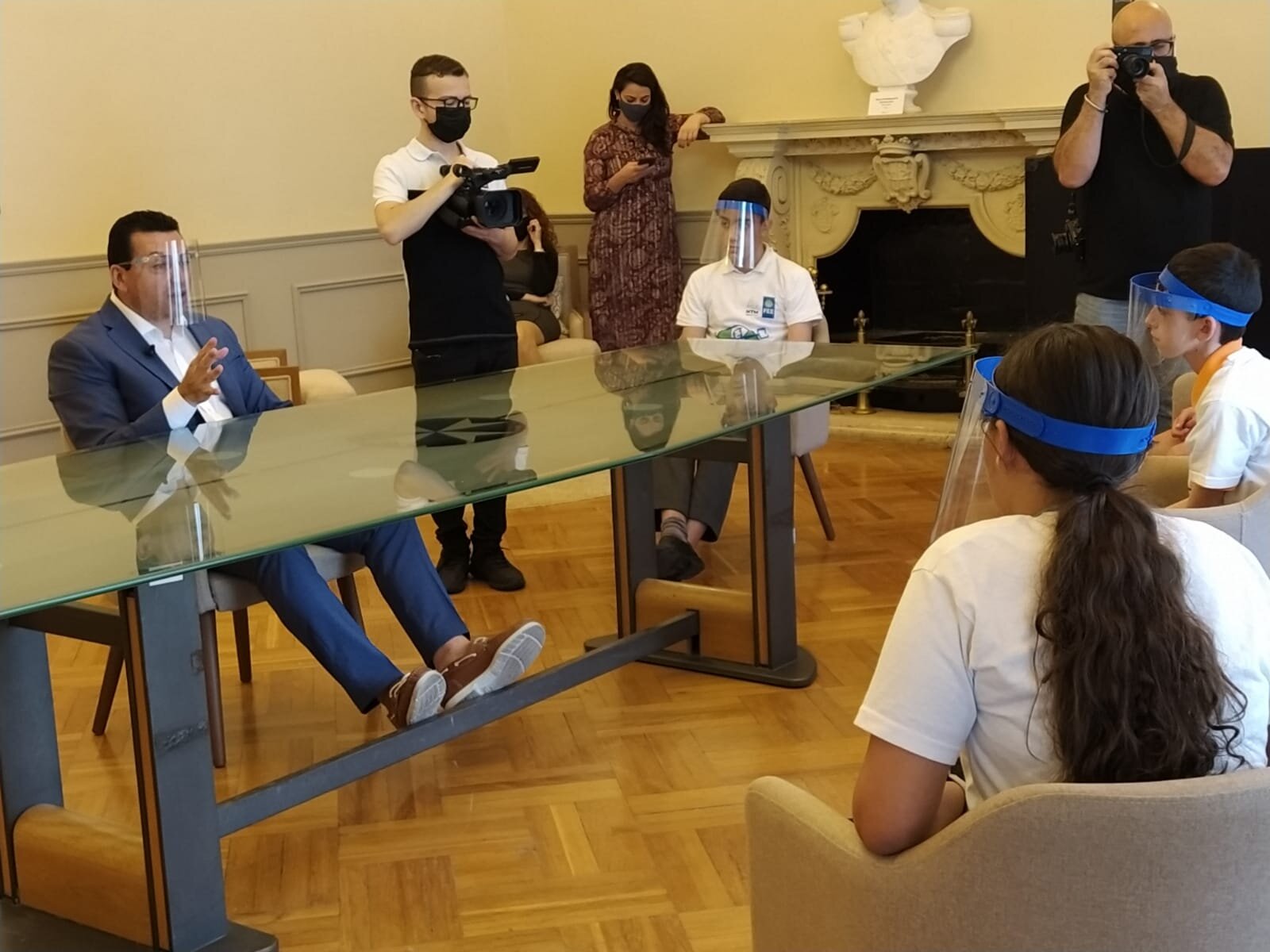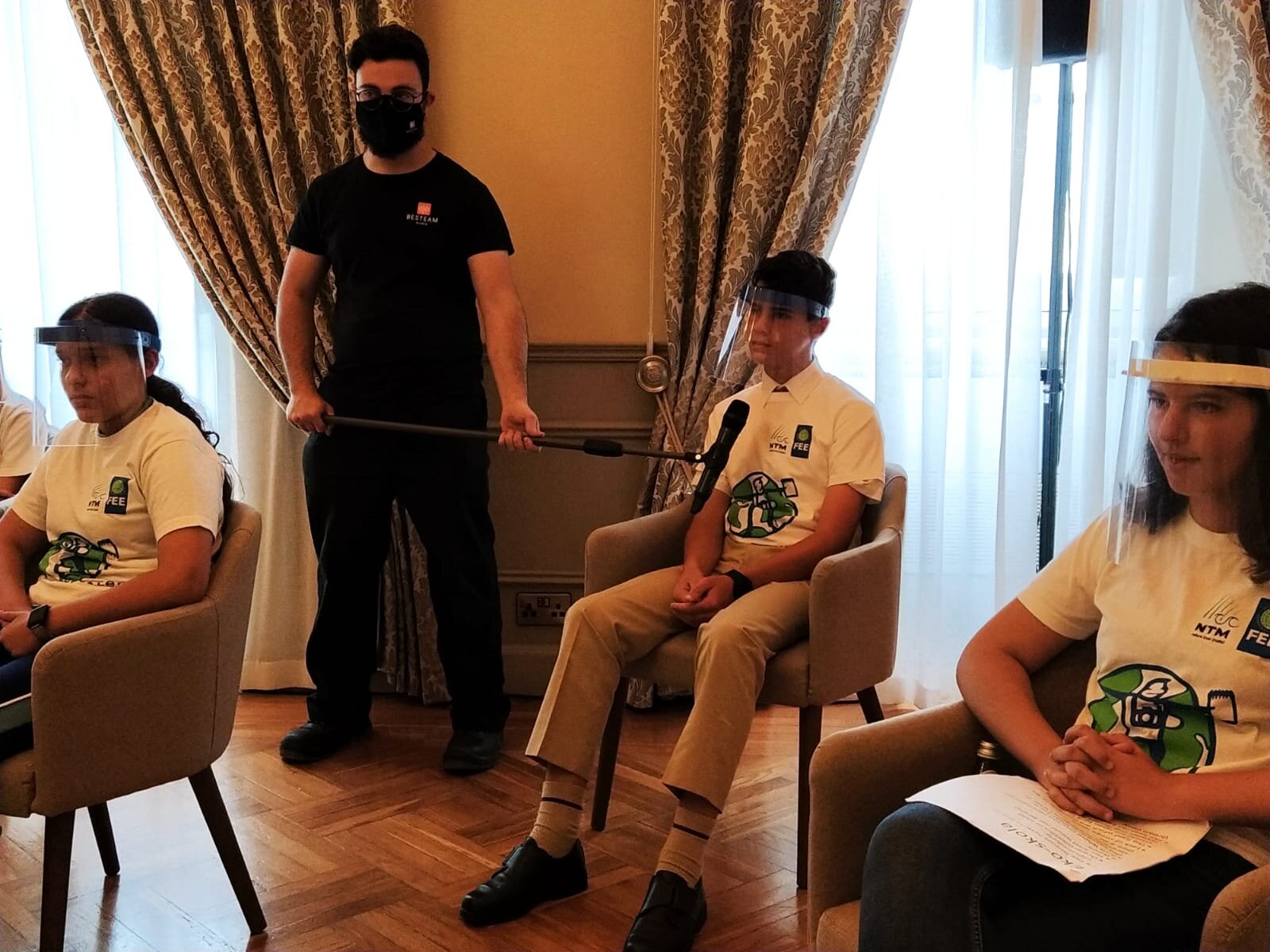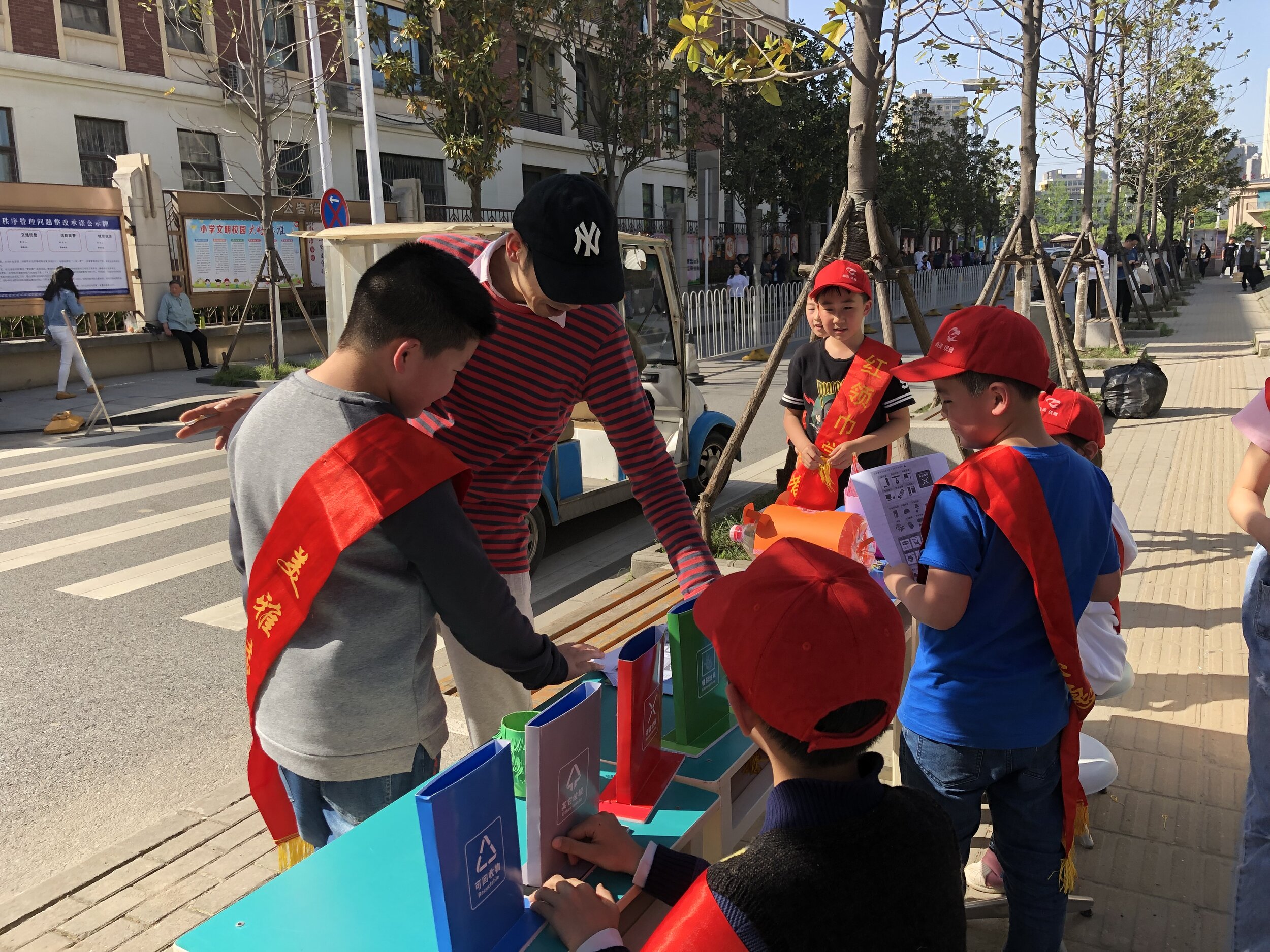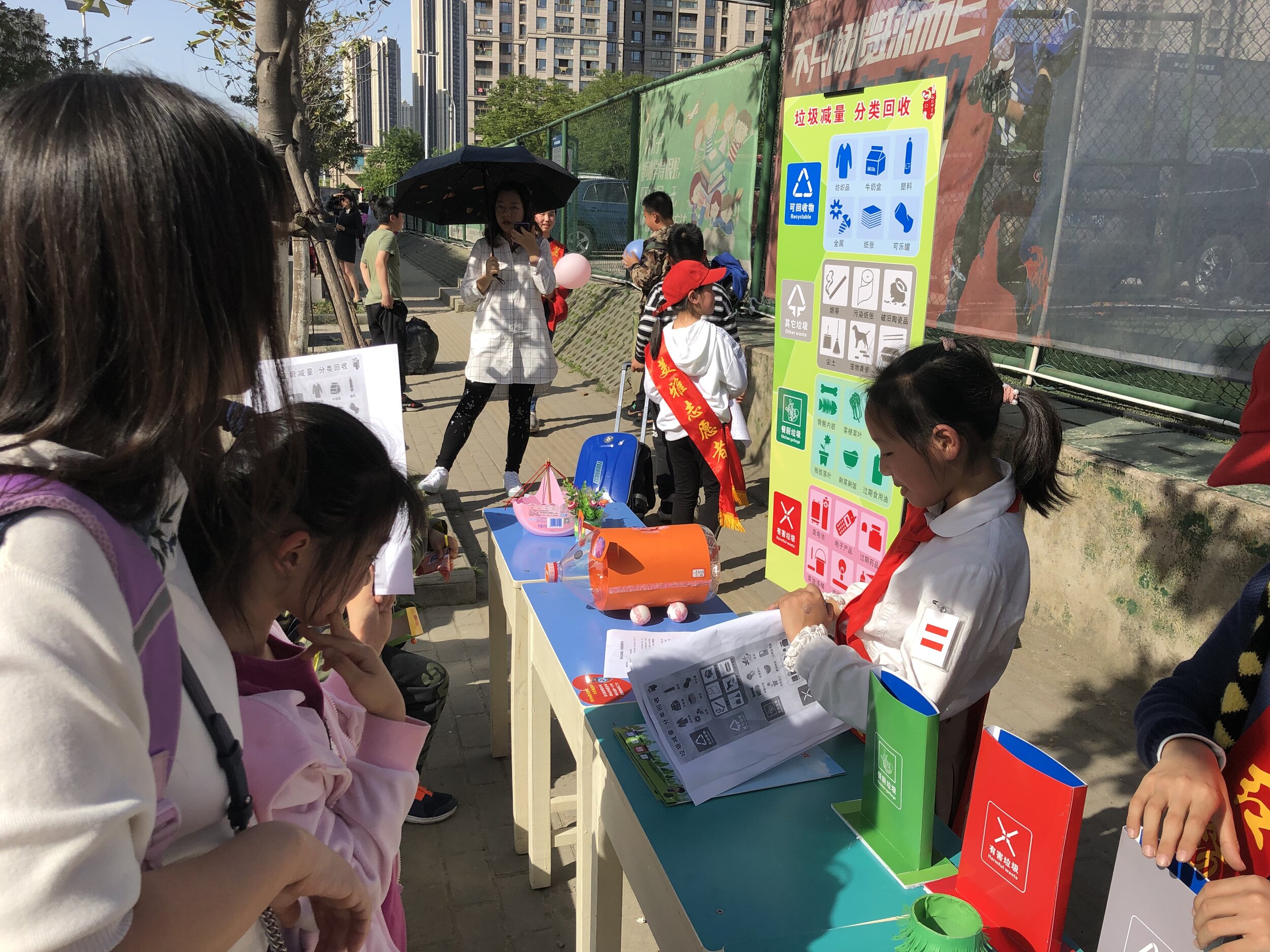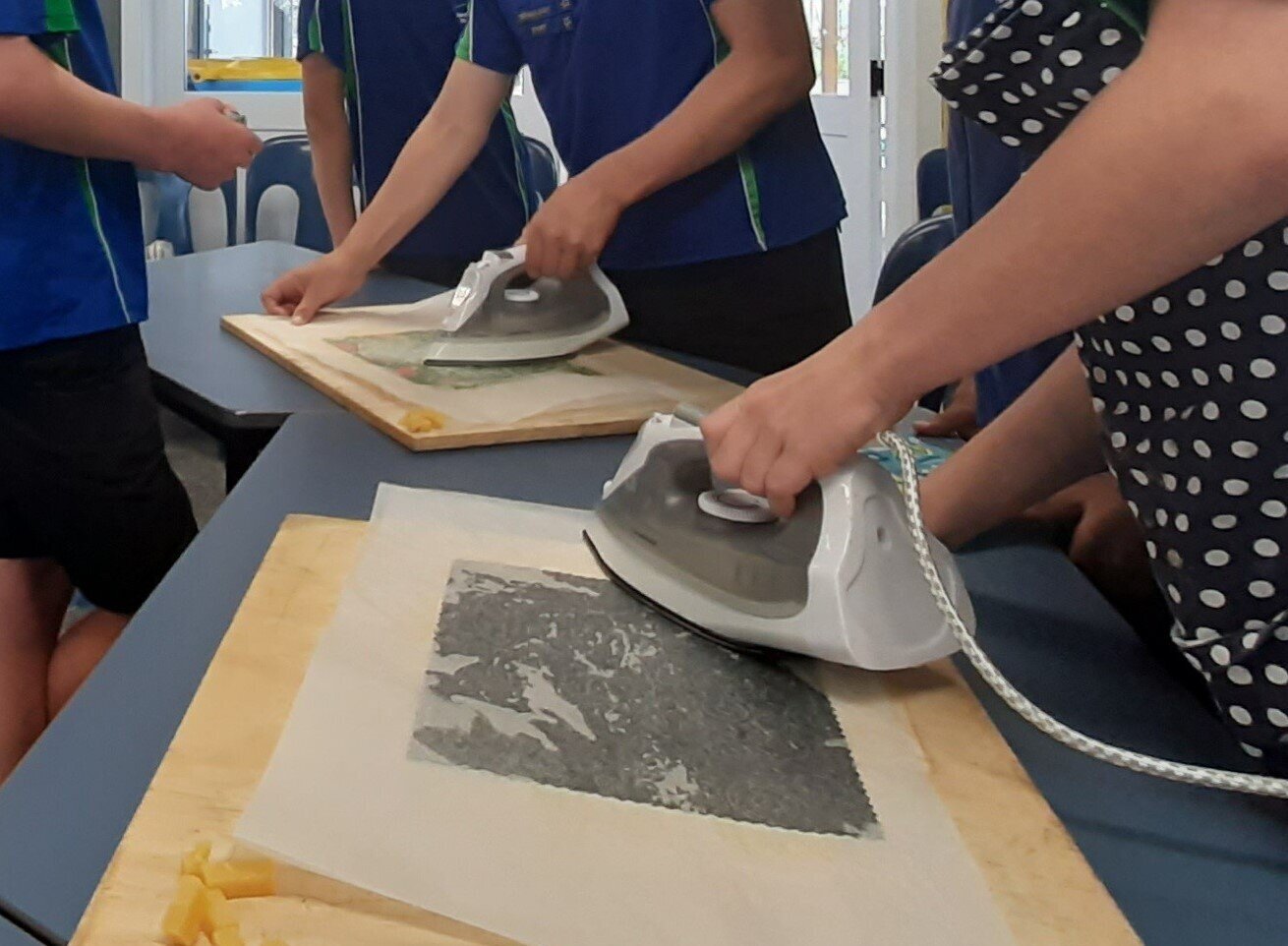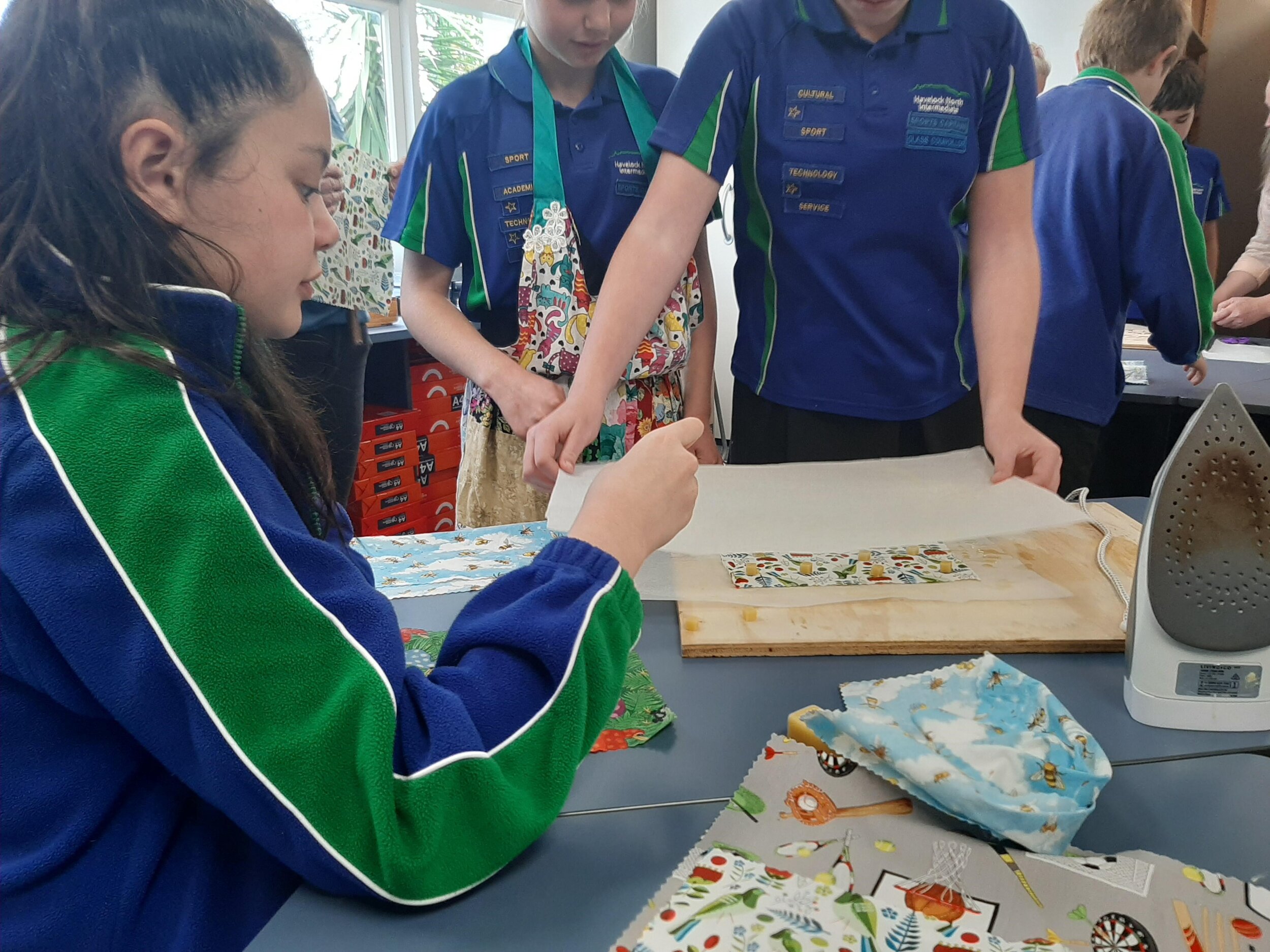A team of 10th grade students at the Ibn Khuldoon National School in the Kingdom of Bahrain launched a school-wide campaign to tackle e-waste. “The Forgotten Fortune” campaign aims to create awareness about the dangers of e-waste on the environment and how to reduce it. To study the issue, students visited the Bahraini Supreme Council for the Environment and the national e-waste management and recycling company. They also invited representatives from the public and private sectors to their school to discuss solutions. With the support of their teachers, the students are actively working on raising awareness by engaging their peers and communities through social media, competitions and events. For example, they are currently running a school-wide competition to collect e-waste, older students are teaching younger students and younger students are creating art out of the collected e-waste. By working collaboratively and creatively, the students are leading the way to a greener and more sustainable future.
Scouts and Aspnet
Dominican Republic:
The schools are working more widely on sustainable development issues, including topics like renewable energy, recycling, water and reforestation. For example, one school focuses on reforestation through their “Green Day”. Students plant trees and continuously monitor their growth and conditions. In the other school, students are campaigning for renewable energy and recycling to green their school grounds.
Italy:
One of the schools focuses on maritime pollution and students got active through beach clean ups. They also work on the preservation of local biodiversity. For example, the school is collaborating with the local Environmental Education Center and a UNESCO Biosphere Reserve in their vicinity to learn about local species and how to preserve them and, at the same time, to develop an app for tourists with main points of interests through photos and explanations.
The other school has set up an 8 Module course focusing on the SDGs. Students study the SDGs and select one to deepen their understanding of the interrelationship with the other goals and they develop ideas and action plans to bring about change locally. A community action day is planned in the spring as well as documentation and evaluation of the project.
Japan:
The school focuses on student research and awareness raising on single-use plastics and more generally plastic waste. A focus is placed on using digital tools and building public awareness. For example, students take part in community service to pick up litter in community spaces, prepare an article for the school newspaper, create a website to present their research digitally and posters to display findings on the high school campus, university campus and local city office.
Namibia:
The schools in Namibia have focused on raising awareness of litter and waste issues in their schools and communities. For example, the environmental club in one school organized an assembly for the entire school to learn and discuss the importance of keeping the environment clean, share ideas on how to keep the school grounds clean and how to recycle waste at the school. Following the assembly, the entire school community participated in a school clean up.
Republic of Korea:
The school’s work has focused on students conducting research and writing articles on food waste and single-used plastics. Students reflected on their own and their communities’ consumption behaviours and lifestyle and investigated in their own school’s food waste management.
Kingdom of Bahrain
One of the schools is co-leading with another 70 schools in Bahrain a nationwide waste-reduction campaign "MyCleanPlate”, which has been initiated by Bahraini youth and which is officially supported by the Ministry of Youth and Sports Affairs and the Ministry of Education. They launched the campaign in September on the International Day of Awareness of Food Loss and Waste. The objective is to promote a culture of responsible food consumption, change individual food consumption behaviour and to reduce the overall amount of food wasted in Bahrain. The long-term goal is to achieve inclusion of responsible food consumption in the Ministry of Education’s environmental curriculum by 2025. The school is collaborating with a restaurant chain to study food waste. Their first findings are that in a month half a ton of edible food is being wasted that could feed 236 people in hunger. They are also establishing a protocol for responsible food consumption. Students are actively engaged in the social media campaign by creating contents.
The other school focuses its work on tacking e-waste through a school-wide campaign labelled “The forgotten fortune: e-waste campaign”. Teachers first introduced students to the Litter Less Campaign and launched a competition for the best name and logo for their school-based campaign. A team of students from tenth grade manage the campaign with the support of their teachers. They have organized field trips to the national e-waste management and recycling company and the Bahraini Supreme Council for the Environment to study the issue. They also started a social media campaign through the school’s communication channels and by creating dedicated accounts on Instagram and TikTok. Their objective is to create awareness within the community of the dangers of e-waste on the environment and how to reduce e-waste. They are engaging the entire school community and beyond through competitions and events. For example, they organized a high-school wide meeting on e-waste to which they invited representatives from civil society and private sector to share information and ideas to tackle e-waste. They are currently engaging the entire school in a competition on collecting e-waste. Older students are teaching younger students about e-waste and younger students are using e-waste to make art pieces. Bahrain’s largest national telecommunications company is financing the competitions and agreed to sharing their campaign through their social media channels. The students have also engaged in beach clean ups and some students participated in a trip to Iceland where they studied approaches to waste management and sustainability.
New Zealand
We had the majority of participants getting involved in clean ups and auditing waste in 79 towns and cities across New Zealand. We promoted the LLC hashtag throughout the campaign on Facebook and Instagram. This year we also promoted our Litterless campaign action days to our primary schools (students aged 5-10) in conjunction with our annual Clean up Week and citizen science programmes (where students take their litter pick one step further and also compete a detailed litter audit). These schools have free access to select our YRE lesson plans and guides from our website to support their students with Litterless campaign activities.
New Zealand
Planting Initiative
O'Driscoll House undertook a planting initiative at the local Oakley Creek to attract wildlife to urban areas and to protect the health and cleanliness of the creek. The creek is home to plenty of native flora and fauna and including the threatened Longfin eel. They had an impressive result of 30 students planting 650 native species in one day! Initiatives like this help support native species and promote ecosystem biodiversity!
India
Environment Youth club’s clean-up campaign
Environment Conservation Youth Club (ECYC) conducted a clean-up campaign at Bhavani Beach, Mahuva near Bhavnagar in Gujarat, India. With about 30 volunteers, the group cleaned a one kilometer coastal stretch in just 3 hours. The group collected 15-20 kilograms of solid dry waste including single-use plastic bottles, bottle caps, wrappers, polythene bags, cement sacks, and other solid dry waste.
Later, this waste was sent for proper disposal and recycling. Bottle caps were collected separately and reused to make decorative pieces, while plastic is used to make bricks and benches.
China
“Waste reduction starts with me”
Panlong Primary School joined hands with the community of Yingxiang, Jinchen Street, Pan Long District, to carry out the event themed " Waste reduction starts with me —work together to build an international ecology school".
Participating in the paper waste reduction activities were families of various sizes, with little and large hands working together. Parents and children created their own record sheets to track the amount of garbage they produced each day, and then the entire community came together to weigh the total weight of paper garbage produced over the course of a two weeks, with each family striving to become more environmentally (and economically) conscious.
Aside from that, the parents and children launched a waste reduction campaign to raise awareness of the issue across the community, resulting in a positive attitude towards saving paper and resource conservation.
Brazil
Sharing Knowledge about Sustainability
As a Community Action Day, 11 YRE schools from 11 different municipalities got together for an Environmental Seminar, sharing presentations and videos about their actions and community engagement during the Litter Less Campaign. It was a great way for students to share their knowledge about sustainability and the environment as well as to inspire others and meet new people!
To make this day even better, students also created a song and dance that they performed for the audience of guests, teachers and their fellow students.
Ireland
Online YRE Workshops
Funding was used to develop and hold four separate workshops throughout the academic year including the Winner's Workshop which was premiered on YouTube on 10th June 2021 (attached here).
The three skills-based webinars reached over 600 participants at the time of writing and included workshops on:
Videography with RTÉ (National Broadcaster) journalist
Photo skills for future photojournalists
How to write an article with Irish Times journalist
India
A simple act for a nice action!
Did you know: Fruits and vegetables peels can be source of nutrients for plants. The leftovers from fruits and vegetables can be mixed with water, so the nutrients are absorbed by the water. The mixture should then be filtered through a sieve before it is ready to be used as fertilized water for plants.
Tip: Just replace regular water with this fertilized water and see how your plants bloom!
New Zealand
Operations Reduce Plastics
Aparima College began their YRE campaign, Operations Reduce Plastics, with a school-wide presentation that covered some of the most worrying statistics about plastics in the world and in their local environment. The students introduced a plan to measure the number of plastic bottles used by staff and students and ran a survey of student and staff opinions on how much plastic waste they produced. After keeping a weekly tally of different types of materials, they discovered that the Staffroom was the worst culprit, with an average of 20 milk bottles used every week!
The school installed six Recycling Stations which included recycling and compost buckets and made a commitment to reduce their use of plastic by banning plastic utensils in the Soup Kitchen, making beeswax wraps, and by keeping refrigerated food in crockery bowls covered by plates rather than using cling film or plastic containers.
Students concluded the campaign by holding recycling craft activities, with the students making Bee Hotels and Christmas decorations.
A change of behaviour was observed as a result of the campaign. Students and staff put their plastics in the recycling bins and many now choose to bring metal reusable drink bottles to school and use the drinking fountains.
France
Creative Community Action Days
On Tuesday May 25, a big Community Action Day took place. It was a for 180 grade 4 students by Saint Stanislas’ school. There were workshops such as one for creating bulk bags or masks. YRE students were involved, worked on waste and in collaboration with the association called “Hirondelle”. At the same time, a waste collection was organized in the establishment by a 6th grade class. The day of action gave rise to an exhibition which lasted one week. Reports and the product of waste collection were including there.
Albert Schweitzer middle school also held a well-developed Community Action Day. Initially scheduled from April 5 to 16, the programme took place from June 14 to June 22. It was an opportunity to exhibit virtually and, in the documentation and information centre. The work of students was showcased such as posters, reports and podcast. The goal was also to offer various educational workshops related to the climate class project.
On this occasion, the Nature et Société association intervened in all 6th grade classes with different subjects such as deciphering the news, understanding global environmental issues through experimentation and observation or being a local player. The eco-delegates especially had to take part in a discovery trail of local biodiversity between the college and the house of nature with same stakeholders as already quoted. The sustainable development and vegetable garden clubs held activities and workshops to showcase their actions with primary school students.
Many other eco-responsible actions were planned such as a clean run. This programme reached between 300 and 700 people.
Wales
Home learning challenges
Carrying out YRE – LLC investigations during Covid-19 times is not that obvious, especially when schools are closed. Nevertheless, the motivation of Welsch students is not in lockdown ; many schools have taken part as a home learning challenge and that has been a real highlight!
Sian Sykes, a famous Welsh paddle boarder and environmental campaigner, produced some short motivation videos to inspire students to take part in online YRE - LLC activities. Viewed over 1500 times in the social media, this initiative was an inspiration for students, leading to promising actions.
Northern Ireland
“YRE and Much More!” webinar
Once YRE, Forever YRE!
It is no coincidence that this moto lays in the heart of every YRE member. Sharing experiences and enthusiasm from different YRE generations is a key component for the upcoming Young Reporters.
An international collaboration between Eco – Schools Norther Ireland and ABAE Portugal aimed to gather the voices of YRE Ambassadors, teachers and active reporters during a webinar “YRE and Much More!”. The goal also was to allow both staff and students to further discover the different opportunities related to the programme, such as international collaborations, and the YRE process.
Margarida Gomes, Environmental Education and Education for Sustainability Project Manager at ABAE Portugal, lead this session and transmitted her passion to the attending students.
Spain
A creative and participatory solution to recover the school garden
Due to the future collapse of a building, the CEIP Virgen del Rosario school lost its school garden. Schoolers proposed to recover it and its activity by making a greenhouse in a glazed corridor of the school. They imagined flowerpots made with reused containers and with water use systems. The flowerpots have been made by families and the sowing has been done by teachers and students since January.
They also carried out a waste cleaning with the students on the roads, the
countryside and the village stream.
Malta
“My Mask – I care” campaign
Even though in partial lockdown, the spirit of YRE students from Malta was not restrained: they managed once again to bring positive environmental change and raise awareness in their community by individual campaigns.
It is worth mentioning the “My Mask – I care” campaign, conceived and promoted by the YRE – Litter Less Campaign students at Saint Nicholas College Secondary School Had – Dingli.
After investigations the effect of Covid- 19 on the environment, student’s attention was particularly drawn to the negative impact of disposable masks. They presented their thorough research findings to the school assembly and lead another presentation exposing the pros and cons of different types of masks.
The motivation of the students drove them to create a Facebook “Face mask” challenge: from the school to the community, all citizens were invited to post a photo of their reusable mask. The wisely chosen social media Facebook allowed an impressive dissemination, leading to the publication of the challenge on the pages of the surrounding local councils and the official education division website.
Their journalistic spirit cultivated through the YRE programme made the students realise that, if they wanted to achieve greater impact results and better promote reusable masks, they should explore the habits of masks use among the students of their school. Therefore, a survey with questions regarding the mask’s preferences, safety and use was conducted among year 9 and 10 students.
Based on their findings, all of which can be found online, a campaign video aiming to convince students to stop using their disposable masks was created.
Finally, a fund-raising event allowed students to sew reusable masks, according to the safe masks criteria of the WHO, for every year 9 and 10 student in the school.
Malta
Aired discussion with the minister of Environment
On World Environment Day student representatives succeeded meeting the Environment minister, Aaron Farrugia, and presented the findings of their YRE Litter Less Campaign investigations. They also had the chance to present their questions which lead to a fruitful discussion with the minister. This exchange was aired on the minister's Facebook page and on the relevant school media.
China
During the Community Action Day, students sorted garbage, helped the community buy trash cans, participated in the community garbage sorting, helping the community buy trash cans, and taught residents how to sort their trash correctly.
At Zhenxing Road Primary School, all teachers and students of the school were encouraged to participate. All teachers and students broadcasted TV programs related to waste reduction for residents to watch in the community. Community workers also actively provided various help, which made the residents' environmental awareness increase!
New Zealand
In 2020, Havelock North Intermediate School participated in a beeswax wrap making workshop!
A local business volunteered their time and expertise to show the students how to make beeswax wraps so that students could start their own beeswax wrap production As part of the activity, students gave presentations to demonstrate how and why the students should make a beeswax wrap to use instead of clingfilm!
Another highlight of the campaign was learning about the experience of two YRE students, Diantae and Jenny from Orautoha School who investigated the issue of plastic litter in the Ruatiti Valley.
They contacted the local Ruapehu District Council to ask if a recycling station could be installed in the valley to help combat the amount of plastic litter entering the waterways. The Council took their concerns seriously and agreed that having a recycling station would make a “big difference” to the area and is currently working towards making this a reality. They were thrilled that the council has taken notice of their concerns and the girls created a video entry for the YRE competition named 'Small Steps, Big Change'. Jenny said “I'm still surprised that Council have taken notice of a kid at school”.
We believe that this type of story is what YRE is all about! Often our young people believe that adults won’t listen to their concerns about environmental issues. The confidence that students gain when they realise that their actions have made a real difference is one of the most positive experiences YRE students can have, and it is wonderful to see our students empowered in this way.
Watch their video entry here:
Wales
In Wales, Lewis School sent out its Year Seven pupils to litter pick a local park and woodland and to investigate the amount of plastic litter! They were shocked by what they found, but are using it as inspiration for their YRE work.
The Innovate Project in Caerphilly caters for pupils excluded from mainstream education. For their YRE work, all the learners looked at
reducing plastic waste, with a particular focus on raising awareness about the amount of plastic waste at Christmas. As part of their work, they decided to run a Christmas Eco Action Day where all learners showcased what they had done to raise awareness about the issue of Christmas plastic waste! Although not open to anyone outside of the school (due to COVID-19) they involved everyone at the school and shared what they had been doing via Twitter.


